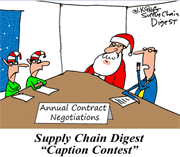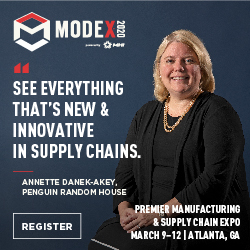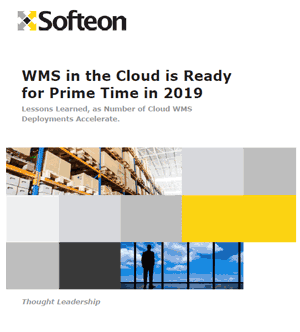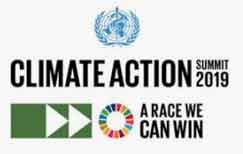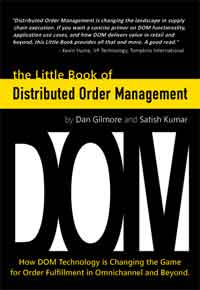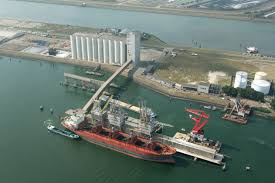Top Supply Chain News by Month in 2019
A couple of weeks ago, I offered my thoughts on the top supply chain themes and trends in 2019. (See Review of the Year in Supply Chain 2019.)
Now, interrupted by a Trip Report from the NRF Show in New York, here is my curated list of the top supply chain stories by month in 2019:
January
China announces it is planning to build 30 logistics hubs by 2020 and 150 by 2025, according to a new plan jointly released by the country's top economic planning agency and the Ministry of Transport. According to the plan, China is to build six types of logistics hubs - inland harbor, cargo port, airport, service-oriented port, commerce and trade-oriented port, and inland border port. China says the move in part is to reduce logistics costs as percent of GDP.
| GILMORE SAYS: |
So that's my list. Had to edit at least twice as many off the list. What did I miss?
WHAT DO YOU SAY?
Send us your
Feedback here
|
The Wall Street Journal reports Amazon is reaching out to parcel shippers to solicit business by offering much lower accessorial fees for things like home delivery and shipments during the peak season. The action of course is counter to Amazon's on-going denials that it intends to build a full parcel delivery network.
February
Foxconn CEO Terry Gou shocks Wisconsin and the Trump administration by announcing that company would not build a giant flatscreen panel factory near Racine - a project that when first announced was said by the company to eventually bring with it an amazing 13,000 job. "In terms of TV, we have no place in the US," Foxconn CEO Terry Gou said. "We can't compete" producing in the US, he added.
A fire destroys the main distribution center of UK on-line grocer Ocado The story is an odd one, because Ocado is transitioning from being a grocer to an automated system provider to other grocery chains. And it was one of its mobile robots, which travel around in a grid-like structure to deliver goods to packers waiting below, caught fire and caused the major blaze, which totally destroyed the DC.
Long criticized for its lack of focus on sustainability Amazon announces it intends to make 100% of its parcel shipments carbon neutral by 2030. That as part of an ambitious new "Shipment Zero" initiative announced on the company's blog. "With improvements in electric vehicles, aviation bio fuels, reusable packaging, and renewable energy, for the first time we can now see a path to net zero carbon delivery of shipments to customers," the company said in the blog post.
March
Energy research firm Rystad Energy says the United States will surpass Saudi Arabia later this year in exports of oil, natural gas liquids and petroleum products. That milestone, driven by the transformative shale boom, would make the United States the world's leading exporter of oil and liquids. That has never happened since Saudi Arabia began selling oil overseas in the 1950s.
Walmart once again ups its compliance ante, saying it would now issue a 3% "chargeback" relative to invoice for each case that fails to meet Walmart's new "on time, in full" requirements. For example, a milk delivery containing 19 of the 20 cases ordered would get a 95% in full rating, below Walmart's 97.5% threshold for food consumables. That supplier would incur a 3% fine on the missing case. Two cases short would trigger a 6% chargeback versus invoice. There are other new standards for late shipments.
The legendary GM plant in Lordstown, OH, near Youngstown, closes. Some 1500 workers lose their jobs, but that was down from the more than 5000 the factory employed at its peak. The plant been the scene of several widely publicized labor related issues since it first opened in 1966, as President Trump rails at GM for the closing.
In an interesting story, a US Labor Department report challenges the generally accepted view of a severe US truck driver shortage, saying the market for drivers is not systemically broken, that movement away from driver jobs not that different than turnover in other in other sectors, and that the issue would be resolved by - surprise - increasing pay. The ATA says the analysis was done without enough context.
April
In its quarterly earnings call, Amazon's CFO says the company will soon offer free one-day shipping to its Prime customers instead of the current two-day shipping. The company also says that it will spend $800 million in the second quarter of 2019 to make changes in its network and processes needed for the new service.
May
Amazon breaks ground for its massive new air cargo hub at the Cincinnati airport. The new 3 million-square-foot cargo hub and 250,000-square-foot loading dock are scheduled to open in 2021. Amazon expects to invest some $1.5 billion in the facility, which will have room for 100 planes.
The International Maritime Organization scraps for now plans to mandate slow steaming for container and bulk ocean carriers, in a move that was considered to reduce CO2 emissions from the sector. There were proposals inside the IMO that would have capped speeds at just 12 knots, which would have a huge impact on global logistics.
Gartner releases top its annual top 25 supply chain list, with Colgate-Palmolive taking the top spot for the first time, but only after 2018 champ Unilever was placed in the "supply chain masters" category - a sort of hall of fame - joining Procter & Gamble, Amazon, McDonald's and Apple, companies not listed in the top 25. The rest of the top 5 were (2) Inditex (Zara), (3) Nestle, (4) Pepsico, (5) Cisco.
Nestle says it is ending it US direct store delivery model, joining Kellogg and others moving instead to shipping to retailer DCs. The moves involves the elimination of an operation that now includes 230 facilities, 1,400 trucks and 2,000 different delivery routes, with many wondering about the future of DSD outside a few product categories.
June
The United Auto Workers strikes out again in its efforts to unionize a foreign auto plant in the US, losing the vote for a second time in four years at Volkswagen's Chattanooga, TN factory. The vote was close, with about 52% of workers saying no to the union after the UAW had spent big bucks on media ads in the weeks leading up to the election. Not one single foreign plant has voted to organize now over several decades.
China and Russia sign an agreement to ship liquid gas from Russia's vast Yamal complex field to both China and parts of Europe across the Arctic Sea using ice-breaker tanker ships. The move is said to further the stated aim of China to develop a "Polar Silk Road" as an element of its overall plan to connect China to much of the rest of the world through massive investment of logistics infrastructure - some say with the aim of dominating world trade.
July
Nike CEO Mark Parker touts the benefits of RFID for inventory management and rapid response fulfillment. In a call with analysts, Parker said that starting soon, Nike will embed RFID in nearly all of its footwear and apparel. "RFID gives us the most complete view of our inventory that we have ever had. It's quickly becoming the most precise tool in our arsenal to meet an individual consumer specific need at the exact right moment," Parker added.
The American Trucking Associations announces that its own most recent analysis of the US driver market found that at the end of 2018, the US truck driver shortage rose to some 60,000, a new record. The shortage at the end of 2018 was up 20% from the end of 2017. To meet the nation's freight demand, the report said the industry will need to hire 1.1 million new truck drivers over the next decade.
August
The Business Roundtable, a group of a couple of hundred CEOs, decrees that corporations no longer exist primarily to produce profits for shareholders, but also to serve customers, employees, suppliers, communities and the environment. That is a big change, and shows how Corporate Social Responsibility is on the minds of executives - and how the dynamics are changing.
The American Trucking Associations' Freight Transportation Forecast estimates that US truck freight tonnage will increase 25.6% by 2030. However, its market share is projected to dip below 69% by 2030, versus 71.1% in 2019.
September
California passes new law encoding previous court decision in the state that would it appears virtually eliminate the use of independent truckers and reclassify them as employees (as well as Uber and Lyft drivers, among others). Would not only change freight marker there, but could spread to other states. At year's end, a federal judge issued a temporary restraining order blocking enforcement of the law for truckers.
Surprisingly, web store front end software supplier Shopify announces it is has acquired 6 River Systems, a provider of mobile robots for distribution. The purchase price is reported to be a significant $450 million, in a combination of cash and stock. That even as Shopify estimated that 6 River Systems will have annual revenues of only about $30 million in 2020. Shopify has earlier announced plans to build out a fulfillment network.
October
Walgreens, FedEx and the Wing Aviation unit of the Alphabet Co. start real commercial drone delivery services shipping medicines in a rural area of Virginia, the first in the US.
Photos emerge of Amazon-branded truck tractors at a parking lot for equipment at truck OEM Kenworth. While Amazon has had branded trailers since 2015, those to date are hauled by commercial carriers, with photos confirming Amazon's plan to expand own logistics capabilities.
Google parent company Alphabet held a secret meeting near its headquarters in Silicon Valley focused on advanced logistics technologies and opportunities. In attendance were reported to be Alphabet executives, retailers, new age logistics companies and at least one major parcel carrier. The event was called the Alphabet Advanced Logistics Summit, and the meeting's objective was to explore potential business models and investment opportunities in the ecommerce space, with a focus in logistics and fulfillment.
November
Hydrogen fuel cell truck maker Nicola Motors announces it has acquired a technology firm it claims has developed breakthrough battery technology that would greatly extend the range of heavy duty trucks and reduce the price and weight of batteries. Nikola says it will provide more details and show the batteries charging and discharging in fall 2020.
Adidas announces plans to close its advanced manufacturing factories in Germany and the US, opened with much fanfare a few years before, and moving the volumes and technology to China and Vietnam, in a blow to the US reshoring movement.
December
Morgan Stanley estimates Amazon is already delivering more than half of its own parcels, and that by 2022 its parcel volumes in the US will exceed those of UPS and FedEx.
The US House of Representatives approves the USMCA agreement - the "new NAFTA" - and later the bill is also approved in the Senate in January, now awaiting president Trump's signature.
The US Purchasing Managers Index, from ISM, which measures US manufacturing health, falls to its lowest level in a decade.
So that's my list. Had to edit at least twice as many off the list. What did I miss? Let me know at the Feedback button or section below.
Any reaction to our list of top stories? What did we missed? Let us know your thoughts at the Feedback button below.
|




